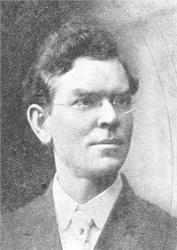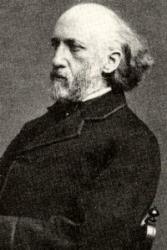1624 - 1679 Person Name: J. G. Albinus, 1625-79 Meter: 8.7.8.7.8.8.7.7 Author of "All Men Living Are But Mortal" in Evangelical Lutheran Hymnary Albinus, Johann Georg eldest s. of Zacharias Albinus, pastor at Unter-Nessa, near Weissenfels, Saxony, 1621-1633, and at Stuhlburgwerben, 1633-1635, was b. at UnterNessa, March 6, 1624. After his father's death, in 1635, he was, in 1638, adopted by his cousin, Lucas Pollio, diaconus at St Nicholas's Church in Leipzig. After his cousin's death, in 1643, the Court preacher, Sebastian Mitternacht, of Naumburg, took an interest in him, and he remained at Naumburg till he entered the University of Leipzig, in 1645. He studied for eight years at Leipzig, during which time ho acted as house tutor to the Burgomaster, Dr. Friedrich Kuhlwein, and was then, in 1653, appointed Eector of the Cathedral School at Naumburg. This post he resigned when, in 1657, he became pastor of St. Othmar's Church, in Naumburg. There he proved himself a zealous pastor, seeking ever "the glory of God, the edification of the Church, and the everlasting salvation, well-being, and happiness of his hearers." During his ministry he suffered greatly, not only from bodily infirmities, but from ecclesiastical encroachments and bickerings. The end came when, on Rogation Sunday, May 25,1679, he quietly fell asleep in Jesus, at 2.30 p.m. On his tombstone his eldest son placed the inscription, "Cum yiveret, moriebatur, et nunc cum mortuus vivit, quia sciebat, quod vita via sit mortis et inors vitae introitus." During his student days he was known as a poet, became, in 1654, a member of the Fruitbearing Society, and was also a member of Philipp v. Zesen's Patriotic Union. As a poet he was, says Koch, " distinguished by ease of style, force of expression, and liveliness of fancy, and his manner of thought was scriptural and pervaded by a deep religious spirit" (Koch, iii. 392-98; Allg. Deutsche Biog. i. 222-223). Of the many hymns he composed, and pub. in his various poetical works, only three have been tr. into English, viz.:—
i. Alle Menschen miiasen sterben. [For the Dying.] This hymn, which Koch, iii. 397, calls "his best known hymn, and a pearl in the Evangelical Treasury of Song," was written for the funeral of Paul von Henssberg, a Leipzig merchant, and was thus sung, from broadsheets, June 1, 1652. It was given in Niedling's Wasserquelle, Altenburg, 1663, and gradually came into universal use, passing through Freylinghausen's G. B., 1704, into most subsequent collections, as in the Unv. L. S., 1851, No. 804, in 8 st. of 8 1. It was a great favourite of P. J. Spener, who sang it regularly on Sunday afternoons; of J. F. Hochstetter, Prelate of Murrhardt, and many others (Koch, viii. 628-631).
In the Blatter fur Hymnologie, 1884, pp. 55-58, the text is quoted in full from the original broadsheet [Ducal Library, Gotha], the title of which ends " Mit seiner Poesie und Musick erweisen wollen Johannes Rosenmüller." Rosenmüller is not, however, known as a hymn-writer, and this statement is hardly sufficient to overthrow the traditional ascription to Albinus.
The translations in common use are:—
1. Death o'er all hit sway maintaineth. A good tr. of st. i., iii.-v., by A. T. Russell, as No. 260 in his Psalms & Hymns, 1851. Included, considerably altered and beginning, " Death in all this world prevaileth," as No. 745 in Kennedy, 1863.
2. Hark! a voice saith, all are mortal. A good tr., omitting st. v., viii., as No. 196 "by Miss Winkworth in her G. B. for England, 1863, and with a tr. of st. v. added as No. 429 in the Ohio Luth. Hymnal, 1880.
Other trs. are:—
(1) "All must die! there's no redemption," by Dr. H Mills, 1856, p. 234, 1st pub. (reading “no exception") in the Evang. Review, Gettysburg, Oct. 1851. (2) "All that's human still must perish," by Dr. John Ker, in the U. P. Juv. Miss. Magazine July, 1859. (3) "Tis God's decree that all shall die," by Dr. G. Walker, 1860, p. 107.
ii. Straf mich nicht in deinem Zorn. [Ps. vi.] Of the origin of this hymn, J. C. Wetzel, i. 46, and ii. 404, relates what seems rather an apocryphal story to this effect:—
Johann Rosenmüller, while music director at Leipzig, had been guilty of improper practices with some of his scholars. He was thrown into prison, but having made his escape, went to Hamburg. Thence he sent a petition for restoration to the Elector Johann Georg at Dresden, and to support his petition enclosed this hymn, which Albinus had written for him, along with the beautiful melody by himself (in the Irish Ch. Hyml., 1876; called Nassau, in the Darmstadt G. B. 1698, p. 49).
This, if correct, would date it about 1655, and Koch, iii. 398, says it was printed separately in that year; The earliest hymn-book in which it is found is Luppius's Andachtig Singender Christen Mund, Wesel., 1692, p. 20. It is a beautiful hymn of Penitence (by Miss Winkworth assigned to Ash Wednesday). Included as No. 273 in Freylinghausen's G. B., 1704, and recently as No. 535 in the Berlin G. L. S., ed. 1863, in 7 st. of 8 1. The trs. in C. U. are :—
1. O do not against me, Lord. A good tr. of st. i., iii., vi., vii., by A. T. Russell, as No. 79 in his Psalms & Hymns, 1851.
2. Not in anger, mighty God. A good tr. omitting st. ii., iv., as No. 41 in Miss Winkworth's Chorale Book for England, 1863, and thence as No. 205 in the Temple H. Bk. 1867, as No. 323 in the Free Church H. Bk. 1882, and omitting the tr. of st. vi., as No. 78 in the Upp. & Sherb. School H. Bk. 1874. In America as No. 398 in the Evang. Hymnal, New York, 1880, in full.
3. Not in anger, Lord, Thou wilt. A tr. of st. i., iii., vi., vii., signed « X. X." as No. 59 in Dr. Pagenstecher's Coll. 1864.
4. Cast me not in wrath away. A tr. of st. 1.—iil., vii., by E. Cronenwett, as No. 235 in the Ohio Lutheran Hymnal, 1880.
Other trs. are:—
(1) " Lord! withdraw the dreadful storm," by J. C. Jacobi, 1720, p. 41; 1722, p. 63; in his second ed., 1732, p. 98, greatly altered, and beginning, " O my God, avert the storm." (2) " Not in anger smite us, Lord," by Miss Winkworth, 1855, p. 55. (3) "In Thine anger smite me not," by N. L. Frothingham, 1870, p. 159.
iii. Welt, Ade! ion bin dein miide. [For the Dying,] 1st printed on a broadsheet for the funeral of Johanne Magdalene, daughter of the Archidiaconus Abraham Teller, of St. Nicholas’s Church, Leipzig, who died Feb. 27, 1649, and included in Albinus's Geistlicher geharnischter Kriegesheld, Leipzig, 1675. Also given in the Bayreuth G. B. of 1660, p. 542, and recently as No. 842 in the Unv. L. S. 1851, in 9 st. of 8 1. The tr. in C. U. is:—
World, farewell ! Of thee I'm tired. A full and good tr. in the 2nd Ser., 1858, of Miss Winkworth's Lyra Ger., p. 207. In her C. B. for England, 1863, No. 198, st. iii., iv., vi. were omitted. Her trs. of 11. 1-4, of st. viii., v., vi., iv., beginning. "Time, thou speedest on but slowly," were included as No. 1305 in Robinson's Songs for the Sanctuary, 1865, as No. 1392, in the Hymns & Songs of Praise, New York, 1874, and Ch. Praise Book, 1882, No. 652. Another tr. is:— "World, farewell, my soul is weary," by Miss Dunn, 1857, p. 113.
-John Julian, Dictionary of Hymnology (1907)
Johann Georg Albinus




